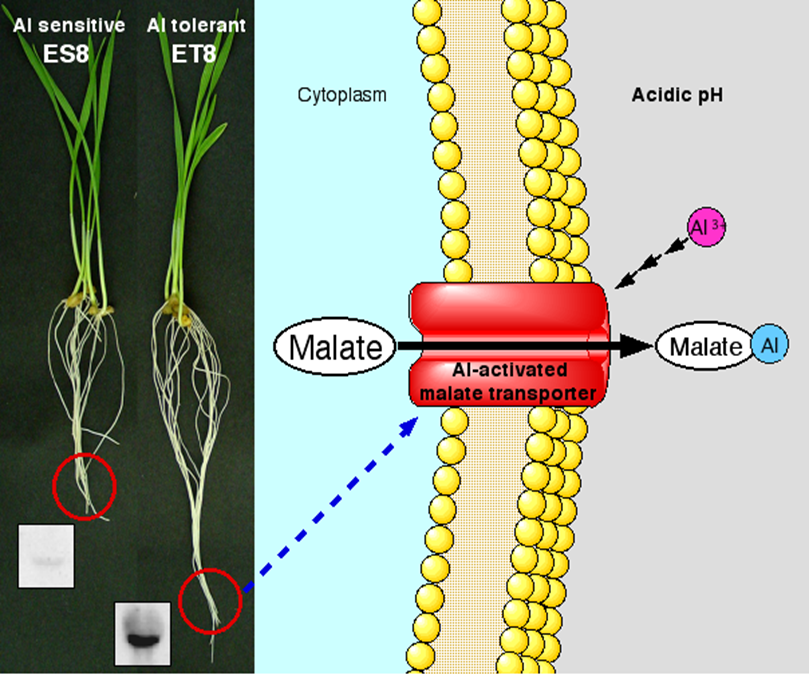Plant Molecular Physiology
 Our research has been focusing on the molecular, cellular, and physiological response and adaptation mechanisms of plants under soil environmental stresses. We study the physiological functions of water-conducting aquaporins and investigate some aquaporins transporting monovalent cations in addition to water. We also report mechanisms for aluminum tolerance and cell-growth regulation of aluminum ions in plants. Furthermore, it is reported that the relationship of transport function and structure regarding guard-cell-type ALMT family malate transporters. To assess the properties of these transporters, we have techniques for functional analyses using a gene expressing system in Xenopus oocytes.
Our research has been focusing on the molecular, cellular, and physiological response and adaptation mechanisms of plants under soil environmental stresses. We study the physiological functions of water-conducting aquaporins and investigate some aquaporins transporting monovalent cations in addition to water. We also report mechanisms for aluminum tolerance and cell-growth regulation of aluminum ions in plants. Furthermore, it is reported that the relationship of transport function and structure regarding guard-cell-type ALMT family malate transporters. To assess the properties of these transporters, we have techniques for functional analyses using a gene expressing system in Xenopus oocytes.
.jpg) |
|
|---|---|
.jpg) |
|
.jpg) Mechanism and regulation of transporters for water, low molecular compounds, and ions on the response to salt stress.
Mechanism and regulation of transporters for water, low molecular compounds, and ions on the response to salt stress.
Aquaporins function during seed formation, which requires desiccation.
.jpg) |
|
|---|

Aluminum-activated malate transporter 1 (ALMT1) in wheat
Aluminum toxicity and tolerant mechanisms were analyzed in plants. I examined aluminum-activated malate transporter (ALMT1) as an aluminum-tolerant factor, and its homologues, ALMT-family transporters (e.g. ALMTs regarding to stomatal closure and malate accumulation in fruit and seeds).
